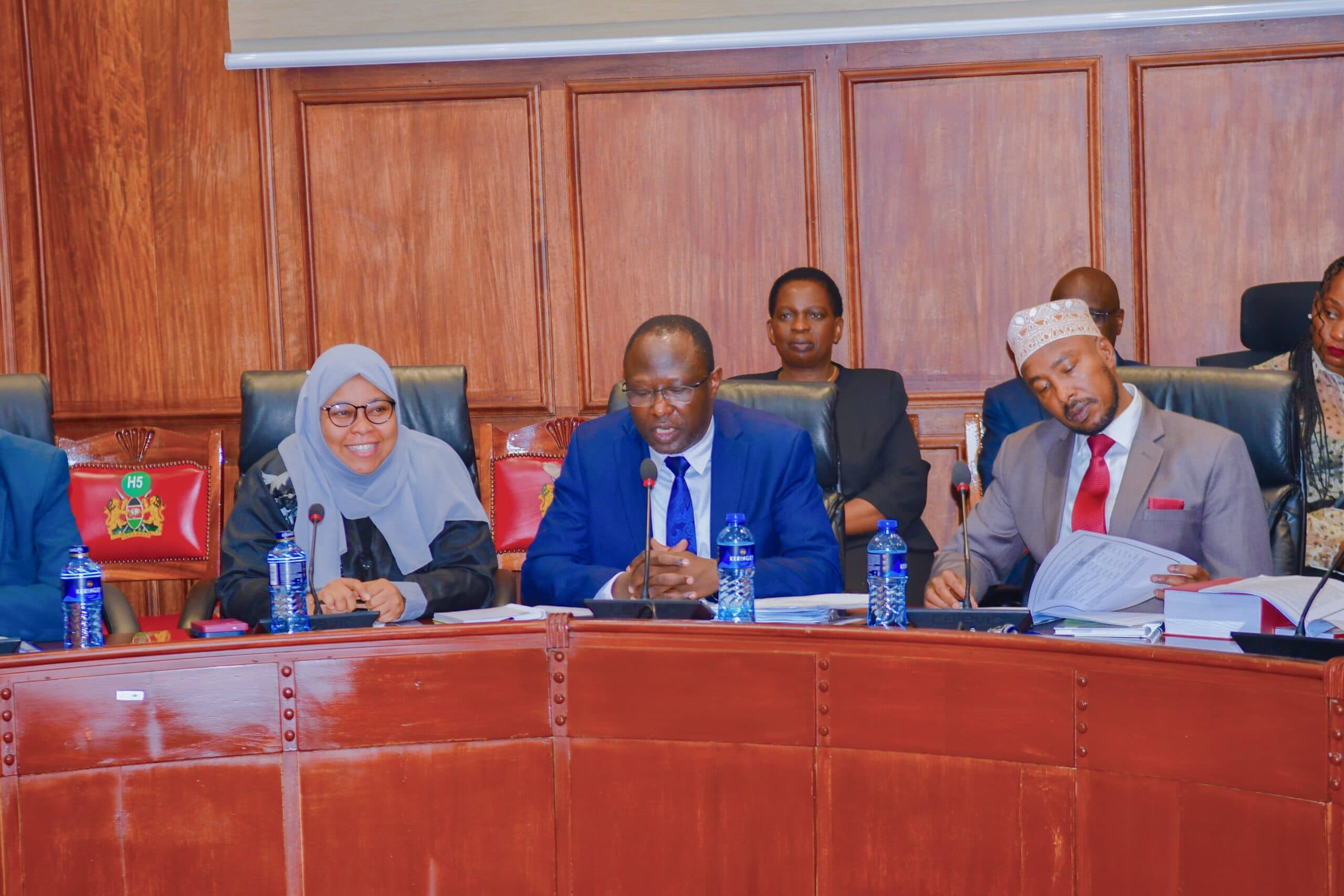We're loading the full news article for you. This includes the article content, images, author information, and related articles.
Independent Electoral and Boundaries Commission (IEBC) Chairperson Erastus Ethekon has declared that a boundary review and delimitation will not be conducted ahead of the 2027 General Election, citing tight timelines and legal constraints.

Nairobi, Kenya — September 26, 2025 (EAT).
Independent Electoral and Boundaries Commission (IEBC) Chairperson Erastus Ethekon has declared that a boundary review and delimitation will not be conducted ahead of the 2027 General Election, citing tight timelines and legal constraints. Simultaneously, he disclosed that the commission plans to run the 2027 election at a cost of KSh 57.3 billion.
In a session before the National Assembly’s Constitution Implementation and Oversight Committee (CIOC), Ethekon said the boundary review exercise is a “fairly emotive” and technically demanding process that normally requires two to three years, making it unfeasible to complete before 2027.
He proposed seeking Parliament’s intervention on timelines and possibly approaching the Judiciary for an advisory opinion to clarify how to proceed.
The commission previously aimed for a review under guidelines from the National Dialogue Committee (NADCO), which suggested altering the review interval to 10–20 years instead of the constitutional 8–12 years. Ethekon warned against relying solely on NADCO’s proposals.
On the election budget, Ethekon indicated that IEBC had initially requested KSh 61 billion, but the figure was rationalised down to KSh 57.3 billion.
The proposed budget breakdown includes significant allocations to:
• KSh 8 billion for continuous voter registration
• KSh 5.9 billion for ballot printing
• KSh 2.5 billion for stakeholder engagement
• KSh 1.4 billion for media campaigns
• KSh 1 billion for legal reforms
• KSh 3.9 billion for training, KSh 4.1 billion transport, KSh 2.4 billion for systems, and KSh 1 billion for simulation exercises
IEBC is also dealing with pending bills of KSh 5.7 billion, mostly legal fees, not included in the new budget ask.
Article 89(2) of the Constitution of Kenya mandates that IEBC reviews constituency and ward boundaries within intervals of 8 to 12 years. The last review was completed in March 2012, making the constitutional window due to lapse.
The constitutional timeline requires boundary reviews to be concluded at least a year before general elections. Because the 2027 polls are set for August 10, the window for completing delimitation before the polls is very narrow.
Some ward adjustments might still be possible, but Ethekon clarified that constituency (290 limit) adjustments are unlikely, meaning the number of constituencies would remain the same. Any changes would be at ward level (names, numbers).
Implications & Risks
Legal challenges: The decision not to review boundaries might invite court petitions alleging constitutional violations, especially from marginalized areas feeling underrepresented.
Political tension: Some political actors might accuse IEBC of bias or manipulation by retaining outdated boundaries that favor incumbents.
Budget pressures: The KSh 57.3 billion figure, though rationalised, might be contested by Treasury or Parliament, leading to shortfalls affecting election readiness.
Operational strain: IEBC must now devote more resources to voter registration, logistics, and legal preparation rather than delimitation.
What to Watch
Whether Parliament amends electoral statutes to extend or clarify delimitation timelines.
Any Supreme Court or High Court advisory petitions on whether IEBC can delay review.
IEBC’s final budget approval from National Treasury and Parliament.
How IEBC allocates the election budget, especially for critical tasks like registration, systems, ballot printing, logistics, and legal defense.
Keep the conversation in one place—threads here stay linked to the story and in the forums.
Sign in to start a discussion
Start a conversation about this story and keep it linked here.
Other hot threads
E-sports and Gaming Community in Kenya
Active 9 months ago
The Role of Technology in Modern Agriculture (AgriTech)
Active 9 months ago
Popular Recreational Activities Across Counties
Active 9 months ago
Investing in Youth Sports Development Programs
Active 9 months ago